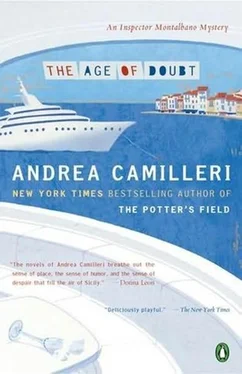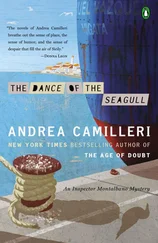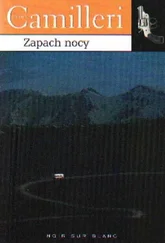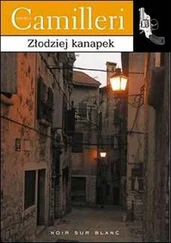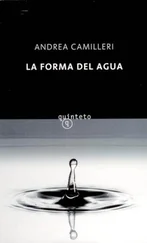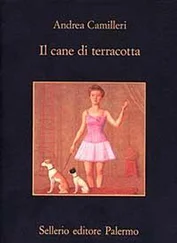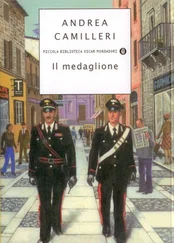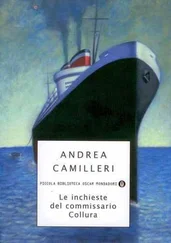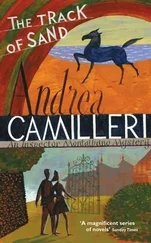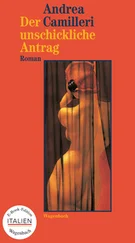
Andrea Camilleri
The Age Of Doubt
Book 14 in the Inspector Montalbano series
Translated by Stephen Sartarelli
Notes by Stephen Sartarelli
He had just fallen asleep after a night worse than almost any other in his life, when a thunderclap as loud as a cannon blast fired two inches from his ear startled him awake. He sat up with a jolt, cursing the saints. Sleep seemed a distant memory, never to return. It was useless to remain in bed.
He got up, went over to the window, and looked outside. It was a textbook storm: sky painted uniformly black, bone-chilling lightning bolts, billows ten feet high charging forward, shaking their great white manes. The surging sea had eaten up the beach, washing all the way up under the veranda. He glanced at his watch: not quite 6 A.M.
He went into the kitchen, prepared a pot of coffee, and sat down, waiting for it to bubble up. Little by little, the dream he had just had began to resurface in his memory. What a tremendous pain in the ass. This had been happening to him for several years now. Why did he always have to remember every shitty little thing he happened to dream? As far as he knew, not everyone, upon waking up, dragged their dreams behind them. They simply opened their eyes, and everything that had happened to them during their sleep, good and bad, disappeared. But not him. And the worst of it was that these were problematic dreams. They raised a great many questions for most of which he had no answer. And in the end he would always get upset.
The previous evening he had gone to bed in good spirits. A week had gone by at the station with nothing of importance happening, and he’d decided to take advantage of the situation to surprise Livia and appear at her doorstep in Boccadasse unannounced. He had turned out the light, lain down in bed, and fallen asleep almost immediately. He’d started dreaming at once.
“Cat, I’m leaving for Boccadasse tonight,” he’d said, walking into the station.
“I’m coming too!”
“No, you can’t.”
“Why?”
“Because!”
At this point Fazio cut in.
“I’m sorry, Chief, but you really can’t go to Boccadasse.”
“Why not?”
Fazio looked a little apprehensive.
“Do you mean to tell me you’ve forgotten, Chief?”
“Forgotten what?”
“You died yesterday morning at exactly seven fifteen.”
And he pulled a little piece of paper out of his pocket.
“You, Salvo Montalbano, son of-”
“Knock it off with the public records! Did I really die?! How did it happen?”
“You had a stroke.”
“Where?”
“Here, at the station.”
“When?”
“When you’s talkin’ witta c’mishner,” Catarella chimed in.
Apparently that sonofabitch Bonetti-Alderighi had pissed him off so badly that…
“If you want to come and have a look…,” said Fazio, “a mortuary chapel was set up in your office.”
They’d pushed aside the mountains of paper on his desk and laid the open coffin there. He looked at himself. He didn’t look dead. But he was immediately convinced that the corpse in the coffin was his.
“Have you informed Livia?”
“Yes,” said Mimì Augello, coming up to him. Then he hugged him tightly and said, crying, “I’m so sorry.”
And a sort of chorus kept repeating:
“We’re so sorry.”
The chorus was made up of Bonetti-Alderighi, his cabinet chief Dr. Lattes, Jacomuzzi, Headmaster Burgio, and two undertakers.
“Thanks,” the inspector said.
Then Dr. Pasquano came forward.
“How did I die?” Montalbano asked him.
Pasquano flew off the handle.
“What! Still busting my balls, even in death! Just wait for the autopsy results!”
“But can’t you just give me a rough summary?”
“It looks like a sudden, massive stroke, but there are a few things that don’t-”
“Oh, no you don’t!” the commissioner broke in. “Inspector Montalbano can’t investigate his own death!”
“Why not?”
“It wouldn’t be right. He’s too personally involved. Anyway, the law makes no allowance for that sort of thing. I’m sorry. The case will be assigned to the new captain of the flying squad.”
At this point Montalbano got worried and took Mimì aside.
“When is Livia coming?”
Mimì seemed uneasy.
“Well, she said…”
“She said what?”
Mimì stared at his shoes.
“She said she didn’t know.”
“Didn’t know what?”
“Whether she could make it to the funeral.”
He stormed out of the room, enraged, and ran into the courtyard, which was crowded with funeral wreaths and a waiting hearse. He pulled out his cell phone.
“Hello, Livia? Salvo here.”
“Hi, how are you? Oh, I’m sorry, I didn’t mean…”
“What’s this about you not knowing if you can make it to-”
“Salvo, listen. If you had lived, I would have done everything in my power to stay with you. I might even have married you. After wasting my life chasing after you, what else could I do? But now that I’m suddenly faced with this unique opportunity, you must understand-”
He turned off the cell phone and went back inside. He noticed they’d put the lid back on the coffin and the cortège was starting to move.
“Are you coming?” Bonetti-Alderighi asked him.
“Yeah, I guess,” he replied.
But as soon as they got to the courtyard, one of the pallbearers fell, and the coffin crashed to the ground with a boom that woke him up.
***
After that, he’d been unable to fall back asleep, besieged by unanswered questions. One, above all, hammered away at him. What did Livia mean when she said she wanted to take advantage of the opportunity? Quite simply, it meant that his death represented a sort of liberation for her. The follow-up question could only be: How much truth was there in a dream? In this particular case, even a tiny grain of truth was too much.
Because it was true that Livia had had more than her fill. In fact, she’d had enough to fill a whole boatload of shipping containers. But how was it possible that his conscience only showed up in dreams, ruining his sleep? All the same, he thought, the fact that Livia had no intention of coming down to Sicily for his funeral was not right, whatever her reasons might be. In fact, it was downright mean.
***
When he got into the car to go the station, he noticed that the sea had come almost all the way up to the house and was less than a couple of feet from the parking area. He’d never seen the water come up this far. The beach was gone. It was all one great expanse of water.
It took him a good fifteen minutes and a couple of hundred curses before the car’s engine decided to do what it was supposed to do, and this, naturally, only aggravated the state of his nervous system, which was already on the ropes from the nasty weather conditions.
He’d gone barely fifty yards when he had to stop. There was a line of traffic extending as far as the eye could see-or, rather, as far as the windshield wipers, which couldn’t quite manage to wipe away the pouring rain, allowed the eye to see.
The column of traffic was made up entirely of cars headed towards Vigàta. In the opposite lane there wasn’t so much as a motor scooter.
After about ten minutes of this, he decided to pull out of the jam, turn back, and, at the junction with the Montereale road, take another route into town. It was longer, but it would, at least, get him to his destination.
Читать дальше
